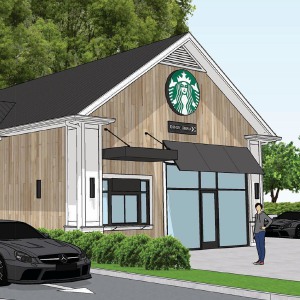Vermont bill would increase reimbursement for Meals on Wheels
| Published: 02-08-2023 3:36 PM |
MONTPELIER — A bill working its way throughout the Vermont House would add $2 per meal to the reimbursement rate for Meals on Wheels programs throughout the state.
The bill, HB 109, was introduced by state Rep. Daniel Noyes, D-Wolcott, in January in response to rising costs and the increasing number of Vermonters who rely on home-delivered meals to meet their nutritional needs. If the bill as written went into effect, it would give an additional $2.3 million of state funds to the Department of Disabilities, Aging and Independent Living to disburse among home-delivered meal providers throughout the state.
“If we don’t support them, they won’t be around,” Noyes said.
Funding for home-delivered meal programs mostly comes from the federal Older Americans Act and is distributed by the states. In Vermont, the funding is split among regional councils on aging, which then split it among other meal providers. Meal providers are not allowed to charge for the meals but can ask for donations from recipients. There are no financial eligibility requirements for home-delivered meals. Rather, recipients must be 60 or older and be unable to provide themselves with nutritious meals.
Noyes suggested an additional $2 per meal in state funding as a place to start the discussion, but said he is not wedded to it as a final amount. Along with the additional funding, the bill calls for a “report containing recommendations for the sustainability of Meals on Wheels.”
“(HB 109) is an important bill for senior centers and meal providers and the first of its kind in Vermont history,” Deanna Jones, executive director of Woodstock’s Thompson Senior Center, wrote in an email. “We will be asking community members to reach out to their legislators to support the passing of this bill.”
While the additional $2 per meal would help, it would still barely cover half of the cost of the meals Victoria Chaffee prepares at the Orange East Senior Center in Bradford, Vt. The center — which serves residents of Bradford, Newbury, Wells River, Fairlee, West Fairlee, Topsham and Corinth — currently receives $3.80 per meal through the Older Americans Act. Last month, recipients donated an average of 97 cents per meal.
Depending on the cost of ingredients, each meal costs $10 to $15. Each Monday, Wednesday and Friday, the center prepares 73 hot, home-delivered meals. They also deliver 20 to 25 frozen meals.
Article continues after...
Yesterday's Most Read Articles
 Starbucks store planned for Route 120 at Centerra
Starbucks store planned for Route 120 at Centerra
 Canaan Elementary School has new principal
Canaan Elementary School has new principal
 City plans to widen and replace bridge on Trues Brook Road
City plans to widen and replace bridge on Trues Brook Road
 Enterprise: Upper Valley pet sitters discuss business growth, needs
Enterprise: Upper Valley pet sitters discuss business growth, needs
 2024 Upper Valley high school baseball guide
2024 Upper Valley high school baseball guide
“Things just don’t add up real well,” said Chaffee, who has served as the center’s cook since last May. “We tried fundraisers, and I’m just real good at robbing Peter to pay Paul, I guess.”
Last year, Chaffee overserved her meal contract by a few thousand meals: She was contracted to serve around 17,000 and ended up doing more than 20,000.
In addition to food, the cost of supplies is on the rise: A 200-count box of aluminum trays cost $70 before the pandemic; now it costs $114. Nutritional requirements have also increased and, with it, the cost of meals.
“They keep putting on these nutritional things that we’ve got to do, but we can’t afford to do it,” Chaffee said, citing the nutritional requirements of the Older Americans Act that call for the meals to be adequate, nutritious, safe and appetizing. “You can only stretch that money for so far, and they don’t seem to get it.”
Noyes’ bill has support from all four political parties represented in the Statehouse. Upper Valley representatives who have signed on so far include Kevin “Coach” Christie, D-Hartford; Carl Demrow, D-Corinth; and Monique Priestley, D-Bradford.
“My intent is to make sure this money gets to the nonprofits that need these added resources,” Noyes said.
He noted that there has been a push for universal meals in Vermont’s schools, and he would also like to see attention paid to older adults who are experiencing food insecurity.
“I want us to make sure we remember that older Vermonters are also in need of these services,” he said.
The proposal for additional funding is welcome news to Mark Boutwell, director of Senior Solutions, the council on aging that provides services for older adults in Windsor and Windham counties, Thetford in Orange County and Readsboro, Searsburg and Winhall in Bennington County.
Last fall, the Springfield, Vt.-based organization asked meal providers to reduce the number of recipients by 25% due to a budget shortfall. Those cuts ultimately were avoided through a donor who pledged a $75,000 matching donation, $75,000 from Senior Solutions’ operating budget and an ongoing fundraising campaign to match the donation. It is not a permanent solution to the funding struggles.
“This is this year. We’re restoring what we cut for this year. Next year things are going to be a challenge again,” Boutwell said. “That’s why this bill in the House, H.109, is so important … to fill some of that gap. And even that bill as it’s proposed isn’t going to fill the whole gap.”
And the numbers keep rising. For the first quarter of the current fiscal year, which ran from Oct. 1 to Dec. 31, White River Junction’s Bugbee Senior Center exceeded its contract estimates for home-delivered and congregate meals by $11,245. And Woodstock’s Thompson Senior Center exceeded its contract estimates by $2,847, according to data provided by Boutwell. Additionally, Brattleboro Senior Meals exceeded its contract estimates by $12,669.
“Each of these sites have been reimbursed for the additional meals served from the funds raised through our fundraising campaign to restore these budgets,” Boutwell wrote in a follow-up email. “Combined federal and state funding for the Older Vermonters Nutrition Program does not meet current and future needs of older Vermonters.”
During the early days of the COVID-19 pandemic, eligibility requirements for home-delivered meal recipients were relaxed, in part, due to the closing of congregate meal sites. As those meal sites reopened — and additional federal funding dried up — Senior Solutions reassessed home-delivered meals recipients to see if they met the post-COVID eligibility requirements.
“Almost all people still do meet the current eligibility,” Boutwell said. “We have not turned people away, and we have not created a waiting list. Those are all great things that the senior centers and we have been able to accomplish.”
Prior to the COVID-19 pandemic, around 53 people received home-delivered meals in Orange East’s area, Chaffee said. While the pandemic did increase those numbers and some people stopped using home-delivered meals once restrictions lessened, the number of people who need the service remains high.
Chaffee has made cuts to other areas to try to make up the deficit. The center cannot afford to pay people to conduct activities, so it must rely on volunteers.
“There’s no money to put into that type of stuff,” she said. She’s also hesitant to ask towns for more funding because they’re stretched thin, too.
“If it gets to the point where we can’t pay the food bill, I might have to eliminate people off it who aren’t as needy,” Chaffee said. “I don’t cherish the thought of having to decide that. Who am I to decide who’s needy and who’s not?”
Liz Sauchelli can be reached at esauchelli@vnews.com or 603-727-3221.

 Football helmet maker buys Lebanon’s Simbex
Football helmet maker buys Lebanon’s Simbex
